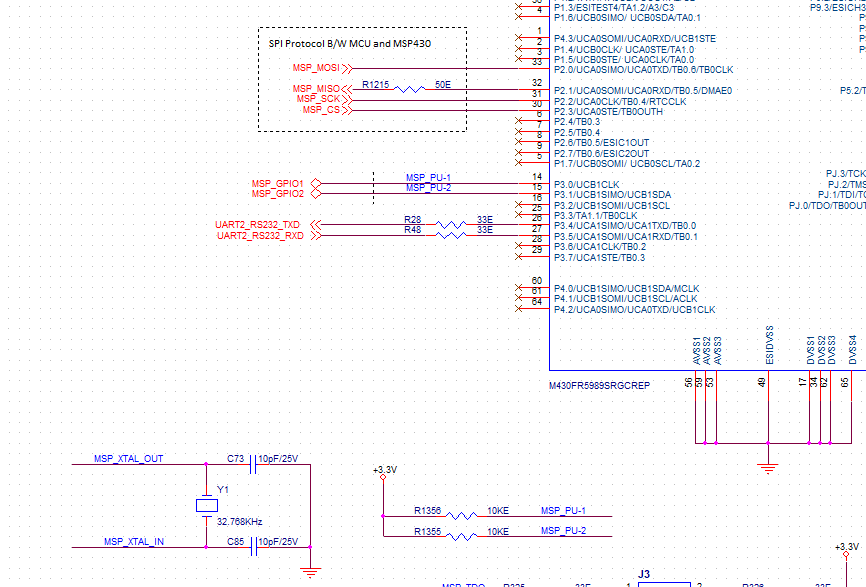Other Parts Discussed in Thread: MSP430WARE, MSP430FR6989, RM48L952, ENERGYTRACE
Hello Everyone,
We have used TMS5703137CGWTMEP Microcontroller in our design. As the MCU doesn't have RTC & we have temperature limitation, we have also selected MSP430FR5989-EP only for RTC purporse.
Can anybody please explain me how to use only RTC in LPM3.5 mode.
attached MSP430FR5989-EP ckt in our design for reference. as in image, pin no. 14 & 15 is connected to TMS5703137CGWTMEP MCU for LPM purpose.


